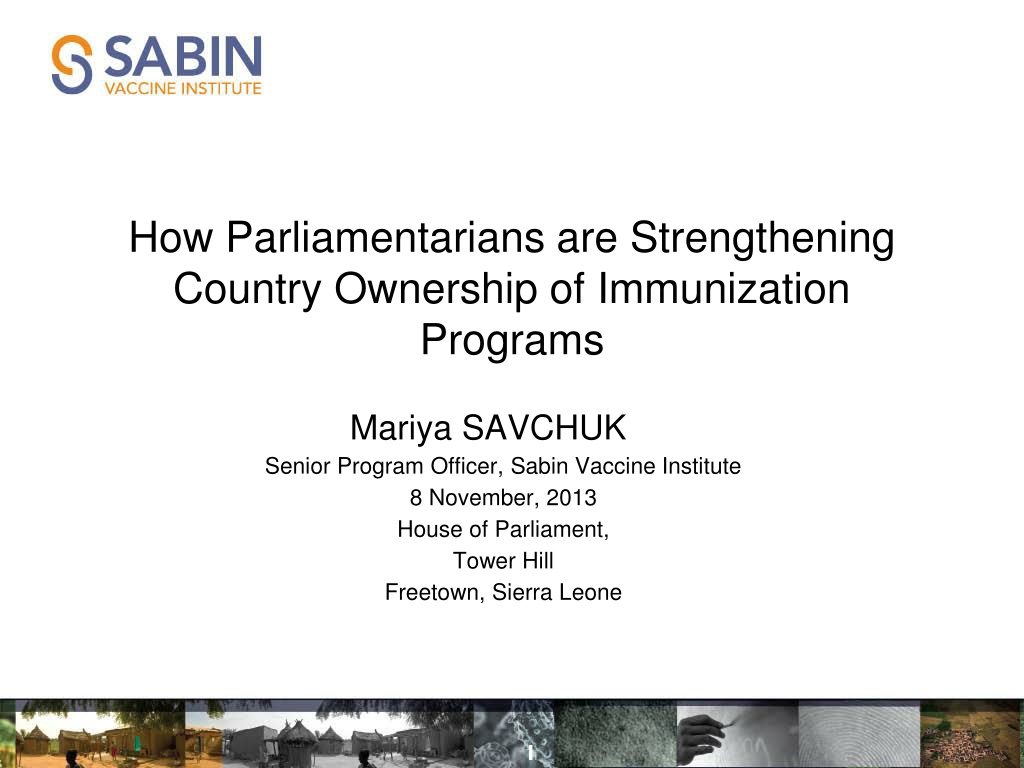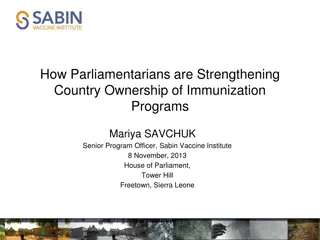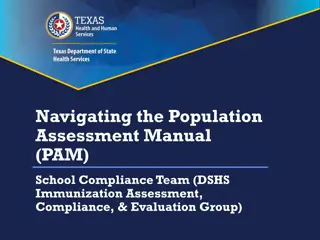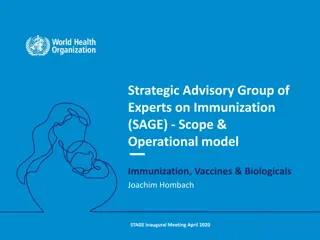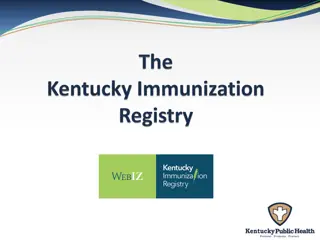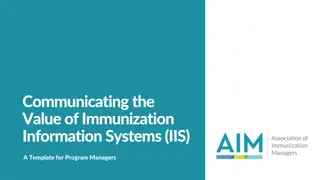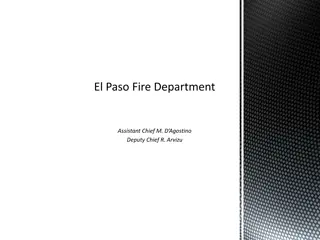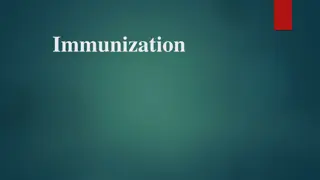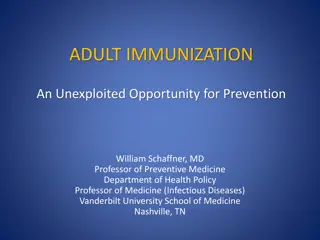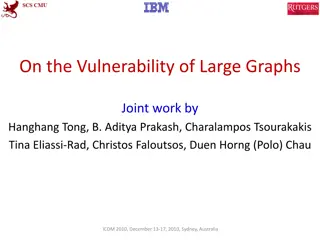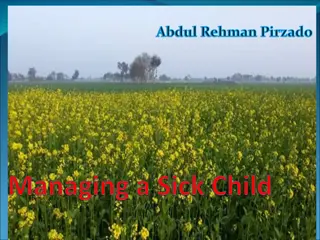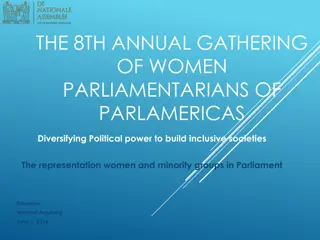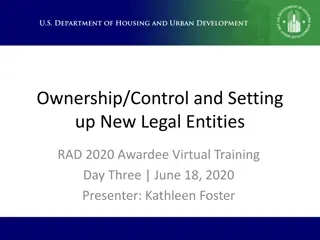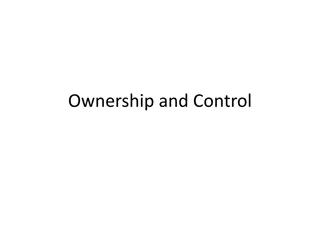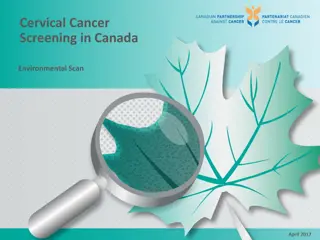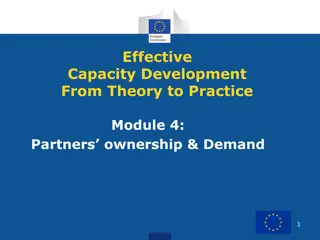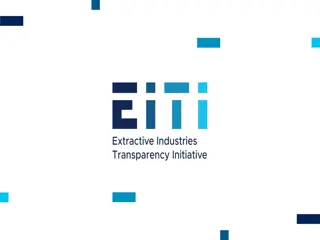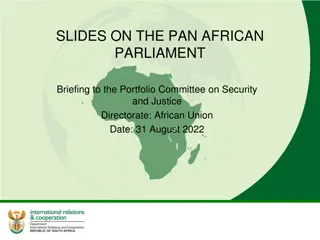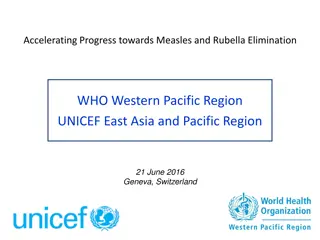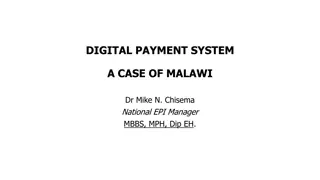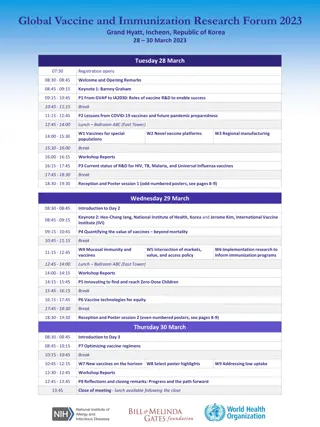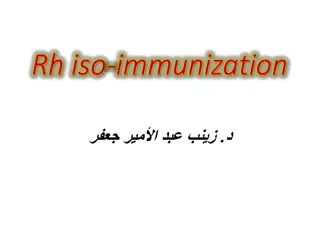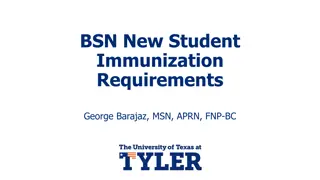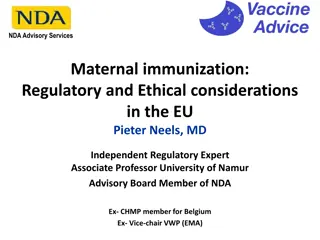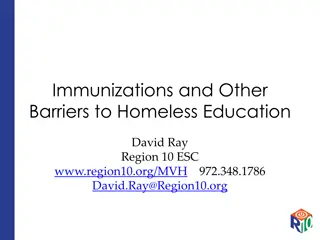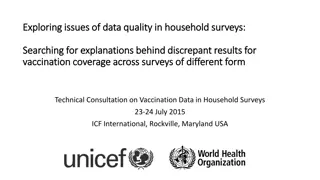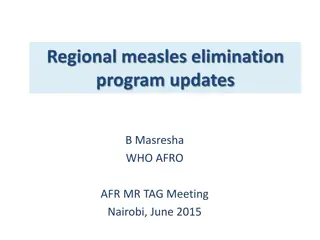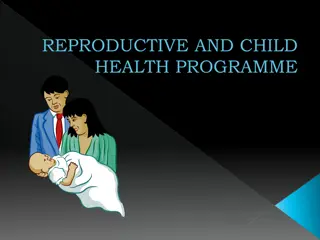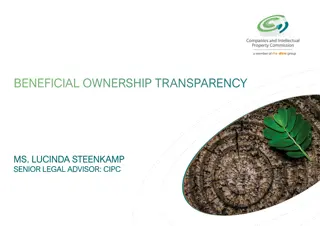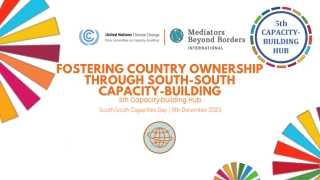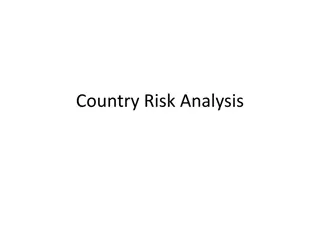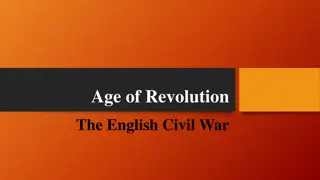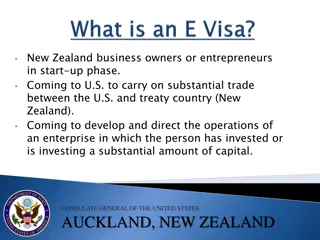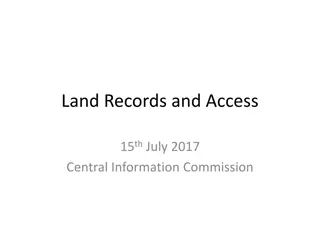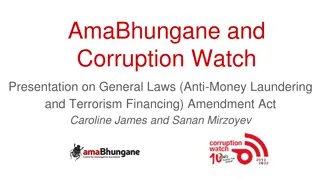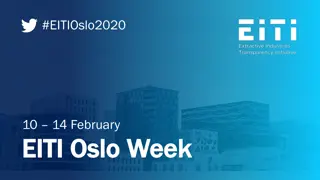Strengthening Country Ownership of Immunization Programs through Parliamentarians
National ownership of immunization programs is essential for providing effective and quality services. Countries must prioritize immunization as a critical aspect of public health. Financial independence is crucial for sustaining immunization efforts as outside donors gradually withdraw support. Well-functioning EPI programs are necessary to ensure immunization services reach all individuals, and parliamentarians play a vital role in advocating for adequate financing, legislation, and oversight to support these programs.
Download Presentation

Please find below an Image/Link to download the presentation.
The content on the website is provided AS IS for your information and personal use only. It may not be sold, licensed, or shared on other websites without obtaining consent from the author. Download presentation by click this link. If you encounter any issues during the download, it is possible that the publisher has removed the file from their server.
E N D
Presentation Transcript
How Parliamentarians are Strengthening Country Ownership of Immunization Programs Mariya SAVCHUK Senior Program Officer, Sabin Vaccine Institute 8 November, 2013 House of Parliament, Tower Hill Freetown, Sierra Leone
What is national ownership of immunization programs? Global Vaccine Action Plan (GVAP) definition: Countries have primary ownership and responsibility for establishing good governance and for providing effective and quality immunization services for all Other interpretations: countries commit to immunization as a top priority and country leaders take responsibility for the Program
Why is national ownership so important? Children are the future and pride of all countries. They will be the productive force behind making the country advance in the future. In order for the future generation to survive and be healthy they need to be protected and taken care of. Immunization is such a protective measure. Immunization is also one of the most cost-effective interventions in health. In other words, spending on immunization and preventing death and disability is a better way to spend money than on more expensive treatment programs. Political importance, showing the population that their leaders are capable of taking care of them and protecting them, is one of the main functions of a state
Question: Can you have primary ownership without paying for something? - When a country depends heavily on outside donors it does not own its program. - Donors have clearly stated that once a country achieves a certain level of GNI they will withdraw, until then they are gradually withdrawing and asking the countries to finance their programs more and more. - Immunization costs are increasing with population growth and introduction of new vaccines (pentavalent, PCV, HPV, rota are expensive. Malaria and dengue vaccines should be available in the near future and will add to costs). In order to be able to pay for their programs in the future, countries need to start planning now.
EPI Programs The other part of country ownership states that effective and quality immunization services need to be available for all. In order to achieve this countries need to have well-functioning EPI Programs in place.
What do EPI programs need that MPs can help with to ensure that the Programs function? 1) Adequate financing (to buy vaccines and injection supplies, maintain cold chain and other equipment, distribution system to ensure that all the population is immunized even in the most remote areas) 2) A sound legislative framework in place to support the program s activities (e.g. no customs duties on vaccines and injection materials at points of entry so that vaccines are not blocked, there are provisions on school requirements in terms of vaccination for children, the program structure is well established, there is a budget line to ensure funds are available for the program in a sustainable way every year, doctors and patients are protected by legal provisions, etc.)
What do EPI programs need that MPs can help with to ensure that the Programs function? 3) Monitoring and oversight to ensure that whenever problems arise there are mechanisms in place that provide a way to address them. The oversight functions of Parliament can help increase transparency and accountability at all levels, leading not only to better functioning programs but also to good overall governance.
Examples of what parliamentarians are doing to strengthen country ownership 1)Creating new or amending existing legislation to ensure that a sound legal framework is put in place 2)Defending immunization budgets and allocating to EPI Programs in accordance with their needs 3)Establishing Immunization Forums, creating a critical mass of MPs to help defend immunization budgets and advocate for the immunization program 4)Working at the regional level through Parliamentary Unions and regional networks to raise awareness and sometimes create region-wide legislation (ECOWAS, EALA, APU, UPI) 5)Informing their constituencies, reporting back on problems and bottlenecks
Create new or amend existing legislation to ensure a sound legal framework Uganda, private member s bill introduced in parliament (Dec 2012) stating that government guarantees free immunization for children and pregnant women, and that children are required to be vaccinated before attending kinder garden and school Mali, updating its existing law (1986) to include newly introduced vaccines and create a National Immunization Fund that will allow to ring-fence immunization financing
Create new or amend existing legislation to ensure a sound legal framework (cont): Cameroon, drafted a decree to create a National Fund to Support Health with a dedicated window for immunization needs and financing, another window for combating epidemics Nepal, drafted a National Immunization Law clarifying the structure of the EPI program, guaranteeing free immunization for target groups and creating a National Immunization Fund to finance immunization activities and EPI needs. The government raised funds to place in the Fund. Cambodia, Kenya, Liberia, Madagascar, Republic of Congo also drafted immunization legislation that is being discussed or revised.
Defending immunization budgets and allocating to EPI Programs in accordance with their needs DRC and Mali, even though both countries entered a state of conflict in the past year and budgets of several health programs had to be cut to increase defense spending, the EPI budgets were untouched since the EPI programs are considered priorities. This was in a large part due to Parliamentary advocacy and intervention. DRC, the Parliament not only approved the EPI budget as it increased over the past years but also allocated additional funds to it since it is considered a priority. It is now advocating for immunization budgets to become part of the country s mandatory spending to ensure that the EPI budget will be fully disbursed in accordance with the schedule every year. Liberia, Sierra Leone, Republic of Congo, and other countries are gradually increasing the budgets allocated to their EPI programs.
Creating Immunization Forums/Networks DRC: Parliamentary Network to support Immunization (REPACAV) Bringing together like-minded MPs, creating a critical mass and a strong voice in parliament to ensure that immunization programs are financed and activities are supported. Ensuring continuity by engaging MPs from previous Parliaments. Hold information sessions and briefings to inform all the MPs in the National Assembly on immunization issues and EPI Program. MPs investigate immunization coverage, availability and accessibility in their districts and report on it every year in their parliamentary reports. Once problems are identified they invite the MOH to come to parliament and collaborate to find solutions. - - -
Creating Immunization Forums/Networks Uganda: Ugandan Parliamentary Immunization Forum (UPFI) brings together MPs from several committees (Children s, Health) and from all parties represented in Parliament. UPFI drafted and helped sponsor the National Immunization Bill which was submitted as a private member s bill by UPFI s chairwoman. The MPs from UPFI get closely involved with their constituencies and promote immunization in their districts, religious leaders and mother s associations (leading to increased demand for immunization). Liberia: newly created immunization network has drafted TOR that contains clear goals. Mali: establishing a parliamentary network.
Working at the regional level DRC is creating a sub-national Parliamentary Network, Ugandan MPs are working closely with the Ugandan Local Government Association (ULGA). Diseases and epidemics do not stop at borders, countries need to collaborate with their neighbors. Regional networks of MPs (EALA, ECOWAS) are raising awareness on immunization issues. Ugandan MPs from the Ugandan Immunization Forum visited EALA and discussed the drafting of a regional bill (for all 5 EALA members) on immunization.
Informing their constituencies, reporting back on problems and bottlenecks Ugandan Immunization Parliamentary Forum works with religious leaders to increase demand for immunization and coverage rates. DRC Parliamentary Network members report on the immunization situation in their districts and submit official reports to their parliament, then invite the MOH to Parliament.
